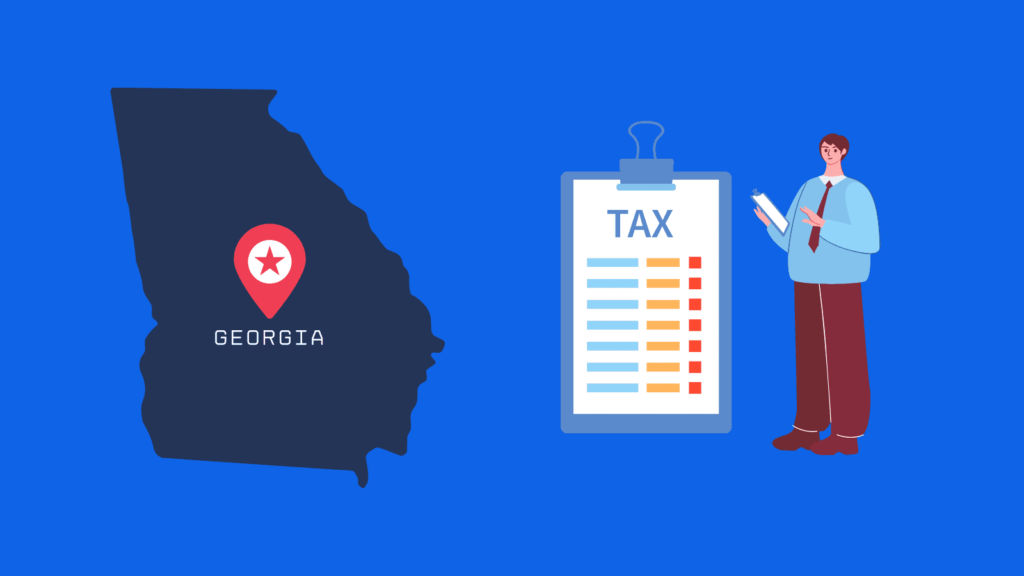Georgia Self-Employed Tax Professional: Key Information on Tax Rates for 2022
December 10, 2022

peakreliance
Accounting, Bookkeeping, Taxes
The self-employed are supposed to be tax-friendly. The self-employed are generally not considered professionals and their personal finances are often not as transparent as those of their professional colleagues. Self-employment can present a whole new set of challenges, but with the right tax planning, it can also present many opportunities. Understanding your risks and rewards is key to staying sane during these changes in your job and personal life. Before making any decisions about your future, you need to know whether you want to go it alone or with an accountant. It might be tempting to trust the people who keep showing up at your front door with your financial affairs, but you’ll be setting yourself up for failure if you do so. If you’re an experienced tax professional and work for a tax-prep firm, that’s great. However, for most people, this is probably not the case And even for those of us who aren’t sure if we have what it takes to become a tax pro, it’s worth looking into whether Georgia has any “unfair” taxes on the industry we choose to practice.
What Is The Difference Between Self-Employed And Independent Contractor?
The term “independent contractor” is often misused. It’s not the same thing as “freelancer,” which is another term often confused with it. A “freelancer” is someone who works for someone else and is paid for their services. “Independent contractor” is a term that describes someone who does work for themselves without being paid for it.
What Is The Difference Between Partnership And Sole Proprietorship?
A partnership is a legal form of organization in which one party, called the “partner,” is responsible for managing and controlling the activities of another, called the “partner.” A sole proprietor is typically the individual who owns and operates the business. It’s important to note that most jobs that qualify as “self-employment” do not fit the definition of partnership or sole proprietorship.
How Self-Employment Tax Changes In Georgia Are Impacting Your Practice
One of the most significant changes to the self-employment tax landscape that took effect on January 1, 2018, is the elimination of the “Roda” exception. This exception allows individuals to treat their business as a “Roda” or “rickshaw” and pay only state and federal income taxes on the full amount of profit made. The new Internal Revenue Code also changed the rules aroundstep-up in complexity. Now, people who itemize their deductions and pay more than the standard 20% tax rate will have to deal with the new rules. People who itemize their deductions and pay less than the standard 10% tax rate will not. This includes certain types of business income, including interest, dividends, and capital gains.
Best Tax Strategies For Self-Employed Tax Practitioners
If you’re self-employed, you’ll need to make a variety of decisions that affect your personal finances and your business finances in tandem. These decisions will affect your personal and business finances in different ways. The following are some of the most important ones to make. Decide what type of business you want to have. Are you going to be the primary business owner or is your company going to provide the majority of your income? If you’re the primary business owner, you can deduct the entire amount paid for business expenses, including property taxes and business interest. Thus, if your primary source of income is business income, you’ll want to make sure that you are able to itemize your deductions. Decide where you’ll accept payment. Do you plan to sell products or services? If so, you’ll want to decide whether you want to accept payment in cash or by check. Moreover, you’ll want to decide whether you want to accept payment by check in person, by mail, or by phone. Decide how much to charge for your product or service. Do you plan to charge a fee for your product or service? If so, decide how much to charge and whether that fee will cover the costs of business expenses, including property taxes and business interest.
Where To Start With Tax Preparation For Yourself-employed Client
If you’re just starting out as a self-employed individual, there are a few pieces of information you’ll want to know. First, you’ll want to get your taxes done every year and understand your individual taxes as well as your firm’s. You can find a list of firms in your area by visiting the IRS’s website. You can also call your local IRS office to find out if they accept tax returns. Note that you don’t have to file your taxes jointly with your spouse. You can file them separately and claim a separate tax return for yourself.
Summing Up
The self-employed are unique in that they lack many of the protections and benefits that are available to those who work for a company. Additionally, the taxes they pay are generally lower than those paid by people who work for a company. This article has provided details on the taxes that you as an individual will have to deal with and what you need to know. If you’re self-employed, it is critically important that you understand your risks and rewards.
Post Tags :
Georgia, Self Employment Taxes
About Us
Empowering small businesses and individuals with efficient and reliable bookkeeping & tax services.

